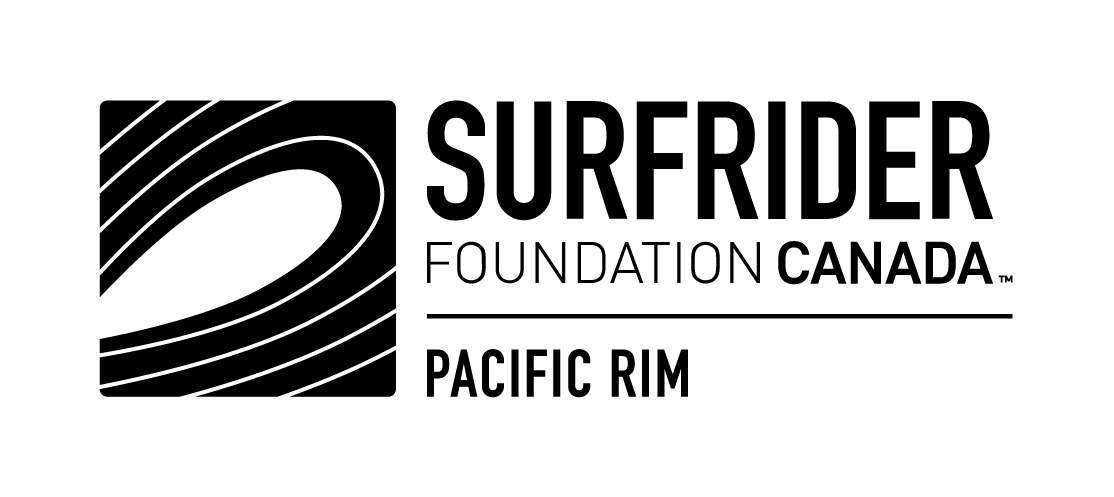Surfrider Pacific Rim: On protecting Canada’s Oceans this World Oceans Day
Canada boasts the longest coastline in the world, and as a developed nation with this tremendous asset, it would seem common sense that Canada would be a global leader in the protection and restoration of oceans and coastlines. Our government certainly claims this, but just as clean up groups like Surfrider are asking where the next remote clean of unprotected shoreline will take place, we are also asking ourselves where the truth lies in Canada’s efforts and commitments to our oceans.
In November 2016, Prime Minister Justin Trudeau launched the Ocean Protection Plan (OPP). In preserving and restoring the oceans, this plan includings protecting marine animals, preventing and responding to marine pollution incidents and restoring coastal ecosystems.
None of these areas of focus include any mention of plastic pollution, yet plastic pollution has become one of the greatest threats to marine life, with microplastics found in salmon as well as shellfish on our coast. Plastic shipping spills continue to happen from corporations like Hanjin Shipping, and there are no measures in place to protect ecosystems and coastal communities from these events. Plastics are an oil derivative, yet spills of this nature are not seriously considered unlike any other type of oil spill. Lastly, to truly restore our oceans and coastal ecosystems we need to clean up the damage that has been caused by plastic pollution as well as work to address the root of this crisis.
It’s clear that the Ocean Protection Plan has a major gap in it, and while countries all over the planet are creating policies to deal with plastic pollution, Canada continues to fall behind on addressing this issue. Fortunately, in November 2017, MP Gord Johns put forward Motion-151 in the House of Commons, which has the goal of creating a national strategy on plastic pollution. The aim of this strategy is to create permanent, dedicated, and annual funding for community led clean-up projects, reduce consumer and industrial use of ‘single-use’ plastics, create a plan to clean-up derelict fishing gear, promote education and outreach campaigns on the root causes and negative environmental effects of plastic pollution.
Motion-151 has been picking up momentum as the global stage has turned attention to plastic pollution, which is destroying the livelihood of the oceans. This Friday, June 8, World Oceans Day action focuses on “preventing plastic pollution and encouraging solutions for a healthy ocean”.
Gord Johns will be participating in this day by hosting an event in Parksville, which includes a beach clean, kids activities, and a roundtable discussion with local environmental leaders on M-151.
Coincidentally, the G7 Summit also takes place on June 8th-9th in Charlevoix, Quebec, and Justin Trudeau is using Canada’s 2018 Presidency to showcase both national and international priorities. One of the five themes of the G7 is working together on climate change, oceans and clean energy, and Environment Minister Catherine McKenna has stated that the plastics charter will be the centrepiece of environmental discussions. The charter will focus on a high-level policy approach that will include targets for reducing the amount of garbage in the oceans and call for domestic plans to meet those targets.
A massive clean up of the Broken Group Islands in the summer of 2016 covered the entirety of this dock with marine debris. (Westerly File Photo)
As Canada’s oceans continue to be inundated with plastics, the need to implement M-151 is evident, as it is action focused and has a two fold approach: clean up the existing damage and create solutions that will tackle the root of the problem. For Surfrider Canada, this approach is built into our mission. We execute local and remote clean-ups monthly on the west coast of British Columbia, which is overrun with marine debris. We lead campaigns to eliminate single use plastics, and as of World Oceans Day, the entire Pacific Rim, from Tofino to Ucluelet, will be single use plastic straw free. We are also waiting on both the Tofino and Ucluelet District’s verdict on banning plastic bags from business checkouts, whilst asking the municipalities to consider a broader single use plastic ban that would look to ban plastic straws, plastic takeout containers, plastic coffee cup lids, and foam containers. Of course, the larger goal is to make the Pacific Rim an Ocean Friendly Corridor that is single use plastic free. Our greatest hope is to continue making waves of change here on the coast, while working with the government to take action on plastic pollution from sea to sea.
We encourage people to join the World Oceans Day event with Gord Johns in Parksville, and to join the plastic free movement! This includes writing to local and regional electives and letting them know you would like to see a ban on single use plastics, letting local businesses know you would like to see them nix single use plastics, writing to your supermarket and informing the board that you would like to see them eliminate single use plastics and install a bulk section, joining or leading a beach cleanup, as well as sending letters to the editor and sharing messages through social media.
